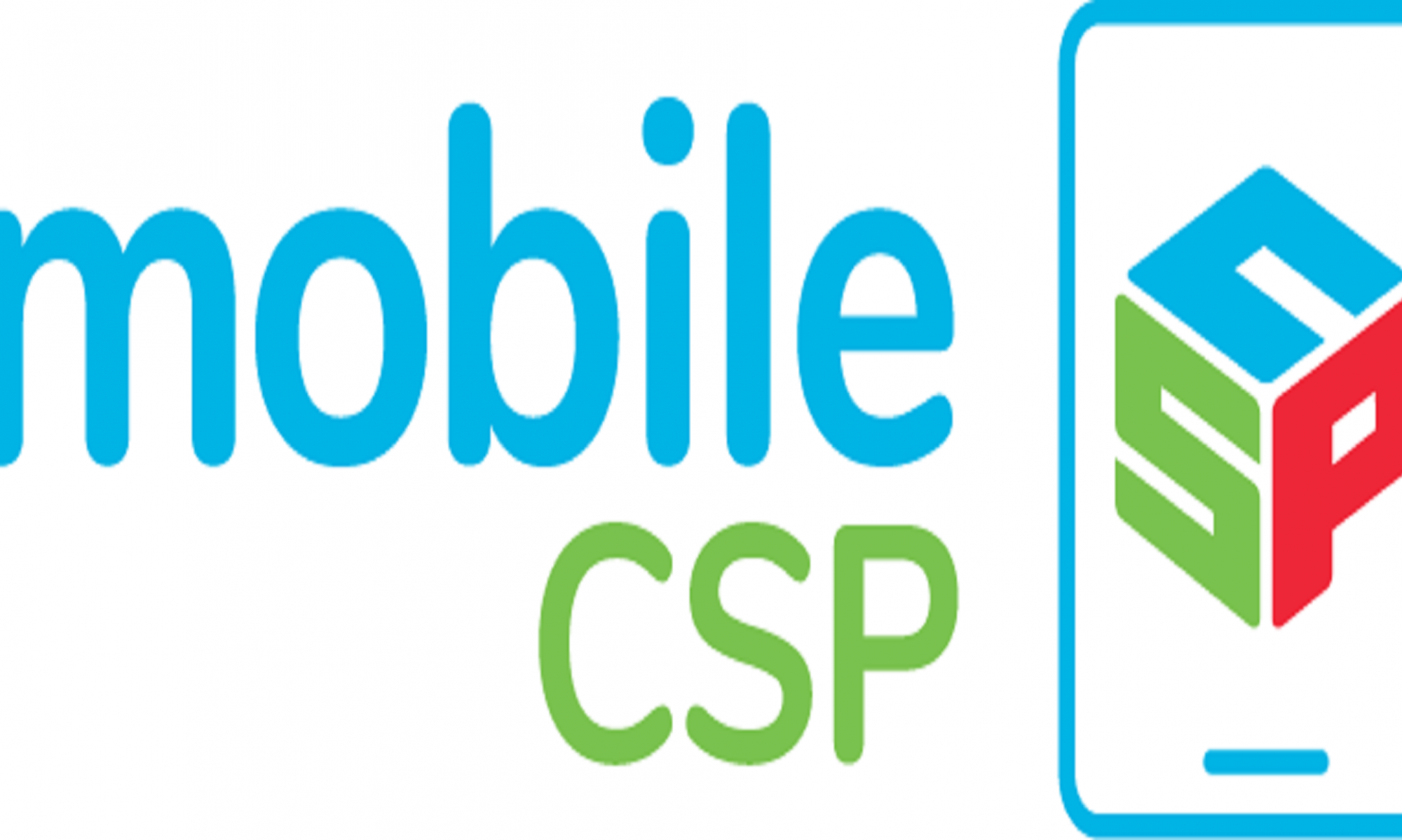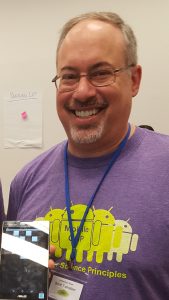Mobile CSP knows that without the commitment, support, and hard work of teachers, students from all backgrounds and experience levels would not have access to computer science. Currently, 981 users are registered for the Mobile CSP teacher materials site and 13,172 people are registered on our student materials site (includes both teachers and students). As our program and the mission of CS for All grows, we would like to honor the work of computer science teachers. To acknowledge their dedication in the classroom, the experiences and stories of a few select teachers who are currently implementing the Mobile CSP curriculum are shared below.
Are you or someone you know currently implementing the Mobile CSP curriculum? Are your students making great strides in the Mobile CSP course?
Would you like to share your professional development experience, teaching insights, or the apps your students have created? Complete a Teacher Feature today!
Teaching this course has lit a fire in me again.
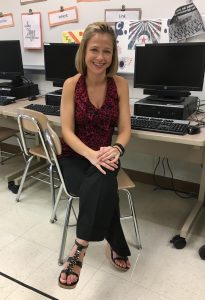
Cindy Moshman-Southworth, who completed the online professional development in the summer of 2017, is currently teaching the Mobile CSP curriculum at Patchogue-Medford High School in New York. She describes the course as fun and interactive, “(Mobile CSP) lit a fire in me again. I’ve been teaching CS for 19 years now. It made me happy to be here again.” Her students have enjoyed creating real mobile apps and sharing their experiences outside of the classroom. Cindy stated she would recommend the professional development to any teacher: “The PD was hard but it really made a big difference in my confidence and helped me to effectively teach the course. The practices and tactics learned in the professional development are really helpful even in the other classes I teach. I use the practices Mobile CSP uses to develop and improve. I’ve learned so much.” She stated that her Master Teacher, Lukas Gill, has been supportive and helpful throughout her experience.
Read Cindy’s full testimonial here.
Teamwork approach encourages students to succeed.
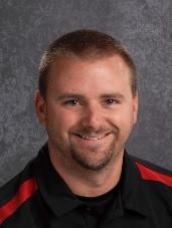
After completing the summer 2017 online professional development, Brad Haugen has brought the Mobile CSP curriculum to students at Fairmont Junior and Senior High School in Minnesota. His students have enjoyed the project-based learning nature of the course and have enjoyed the creative freedom the course offers: “They enjoy the challenge of not just finding the answer but being able to go through the programming steps and learning how to create apps in a different, fun way.” Brad stated that the word of mouth among is students is amazing and students are excited to share their experiences with others. We asked Brad to share his insights and advice with teachers who may be considering implementing Mobile CSP. He stated, “You do not have to be a master at computer programming. Everyone can and will learn how to teach this course effectively. The summer professional development allowed me to make mistakes. It’s important to learn how to make mistakes in front of students. You learn how to work through problems with students and it builds a teamwork approach in the classroom. You may not have all of the answers and it’s ok to let your student know that. It has empowered me as an educator and my students as learners.” Brad has been selected to work with the Mobile CSP curriculum development team for the 2018-2019 academic year.
Read Brad’s full testimonial here.
Inspiring students to pursue careers and futures in working with computer science.
Abigail Cooksey currently teaches at Shiprock High School in New Mexico. Abigail completed the summer 2017 online professional development and was chosen as a recipient for the NCWIT Educator Award. Her students received 4 Regional Runner Ups, 2 Regional Winners, and 1 National Runner up for NCWIT. She learned about Mobile CSP from the Teach For America Exploring Computer Science fellowship. She stated that she appreciates that “Mobile CSP can be customized to students.” Abigail teaches in a rural school district and has acknowledged the challenges that her students face in and out of the classroom. “It’s important to me that all of my students are included and have opportunities to learn. This course includes all students even those who may not have internet at home.” Abigail spoke to how the unplugged lessons and the opportunities for pair programming are teaching students valuable programming lessons while also accommodating their situations. She also acknowledged how having students work on their cell phones has created higher levels of engagement and accessibility in her classroom. “If you’re a teacher working a a rural area you need to have a back up plan to teach computer science. With Mobile CSP, what you need is already there. It’s easy to create programs where you sit students in front of a computer but Mobile CSP gives you the option to customize the course to your school and classroom.” Abigail is making wonderful strides in including all students regardless of background or previous experience. “When it comes to working with women I think of my own experience and how I left a math degree because I didn’t feel included. My goal, and the goal of all computer science, should focus on showing women that we can and have been doing this for a long time. We need to prepare them to be aware of what they’ll face and empower them to have the skills the create their own space even if one doesn’t exist yet.”
Congrats Abigail on receiving the NCWIT Educator Award!
Read Abigail’s full testimonial here.
Mobile CSP students create operations certification training app now used by company
Currently teaching at Montgomery Bell Academy in Tennessee, David Deutsch completed the Mobile CSP immersion professional development at the College of St. Scholastica in summer 2017. David states, “I like that MCSP is relevant to any career interest students choose to pursue. This makes it easier to keep their interest. My CSP students have never asked, ‘How will we use this stuff in real life?’ This makes it more relevant and motivating for me too. I feel that I’m able to positively impact them by providing them with knowledge they too believe will be beneficial.” David and his students have taken a unique, hands-on approach to the Create #1 task. His students worked with a local business to develop an app that the company now uses for operations certification training. Each student was responsible for a component within the app. Students collaborated together to “define requirements, design the user interface, establish development standards to ensure a consistent user experience, and for integration testing of the app.” Through the Mobile CSP course and their work in developing their collaborative app, the students have gained real world skills that are applicable to any job and any field. David stated that he found Mobile CSP’s teacher and student materials to be very helpful. “With my other classes to teach and hockey coaching obligations… it would have been very difficult for me to complete the required daily prep to teach the course.”
Read David’s full testimonial here.
This course has certainly challenged me, but I love to see how kids progress.
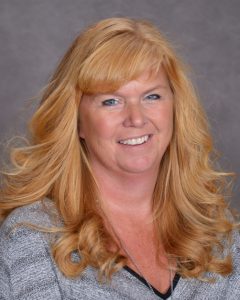
Christine Ahearn is currently teaching Mobile CSP at Lincoln-Way East High School in Frankfort, IL. She completed the online professional development training in the summer of 2017. Christine currently has 20 students in her class. She recommends using creative techniques such as games or funny videos to gain class interest and introduce topics to students. Christine recommends that teachers who are interested in this course undergo the professional development to gain the support and skills necessary to help students succeed. “This course has certainly challenged me, but I love to see how kids progress. The course is well developed. I think what makes it different is that the teacher is a facilitator of information rather than a source of instruction. This allows kids to develop as problem solvers.
My Experience as a Mobile CSP Educator
After completing PD week in Duluth, MN, Scott Feinstein has been teaching the Mobile CSP course at Montclair High School in New Jersey. He stated that his students have enjoyed the ability to work at their own pace through the course and having the freedom to choose what learning strategies work best for them (i.e. reviewing video, slides, text). He recommends teachers find opportunities to incorporate their own activities, discuss current news and innovations and get feedback from students. Scott also sets high standards for his students and rewards “out-of-the-box thinking.” Overall, he has enjoyed how the course is organized, the variety of activities available, and watching his students develop. “About half my class is new to programming. The Mobile CSP curriculum has allowed them to learn and be just as productive as my more experienced students.”
Read Scott’s full testimonial here.
